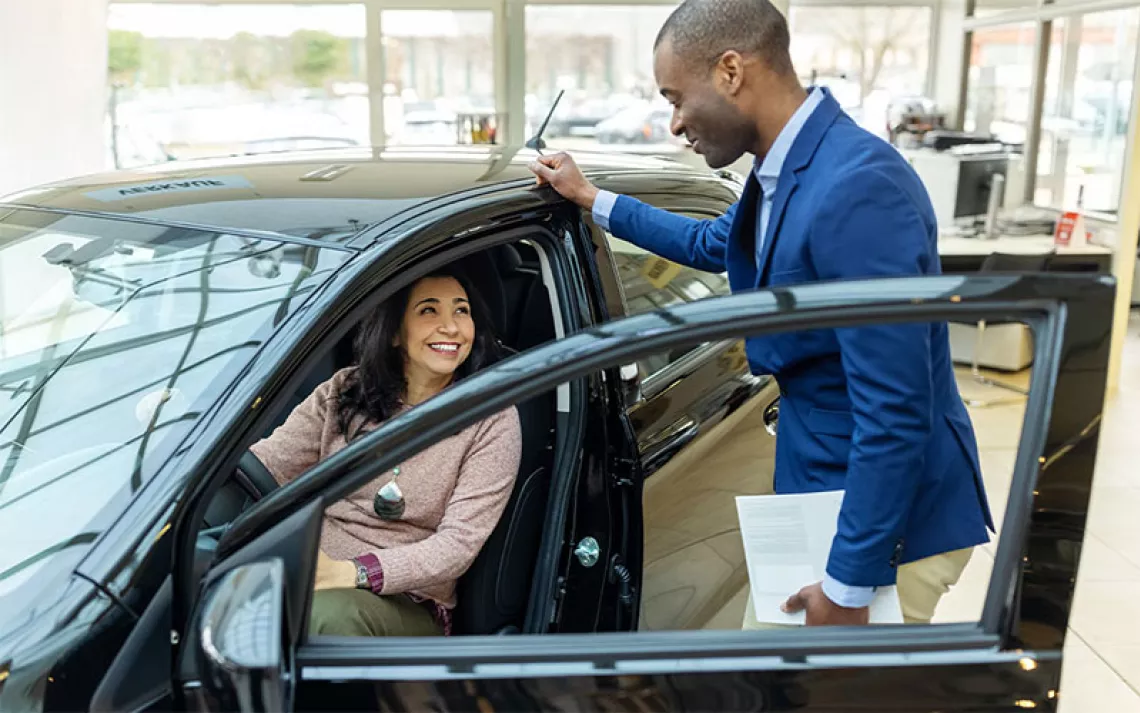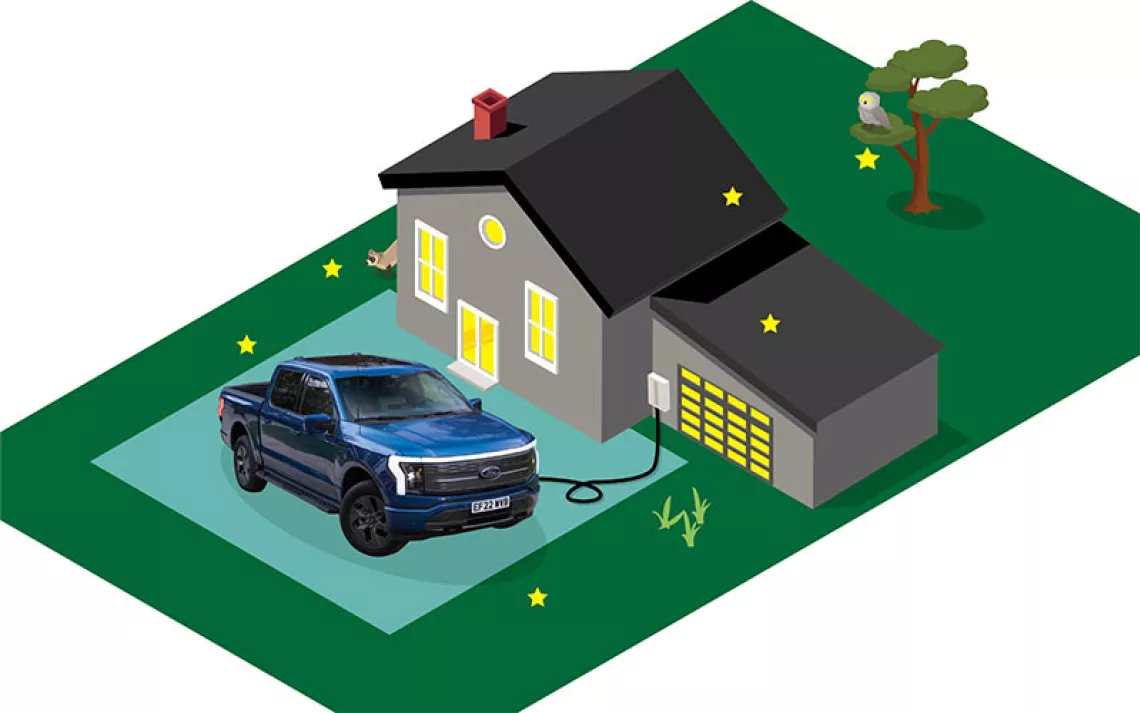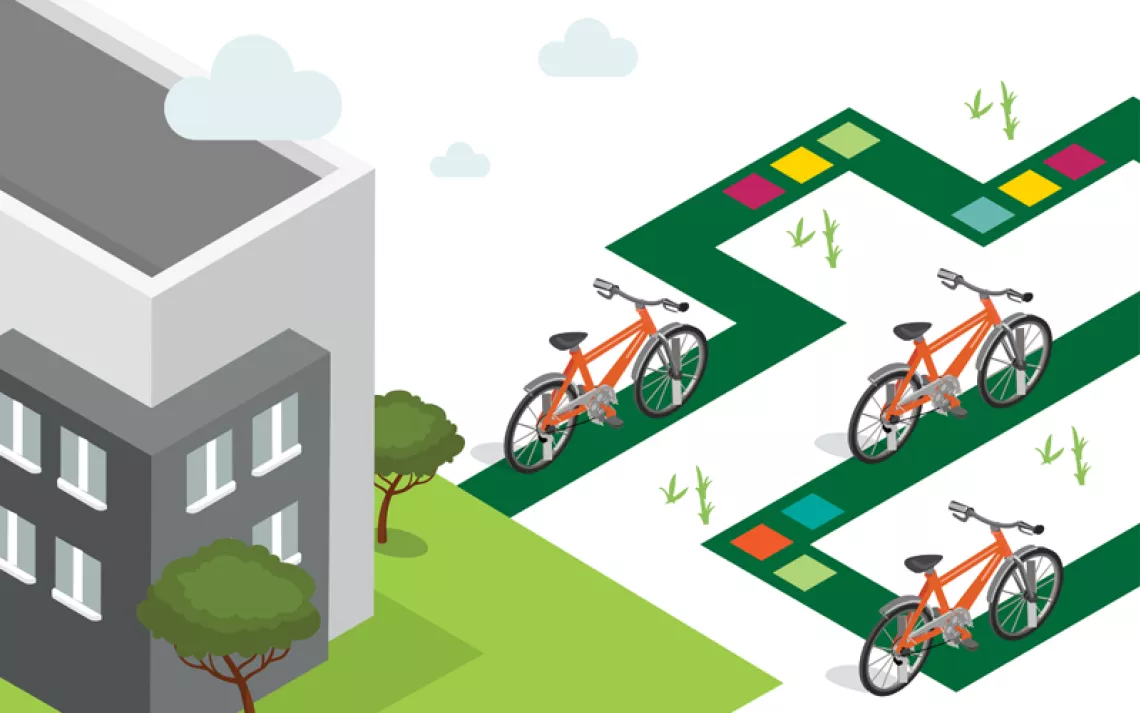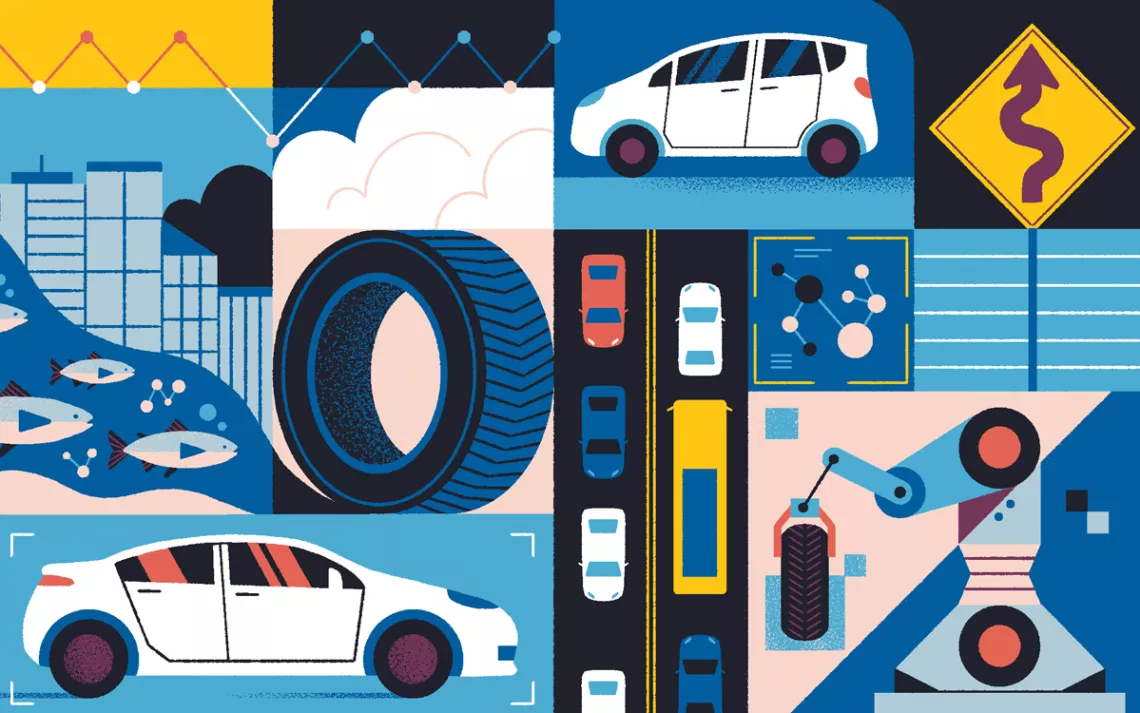If You Build It, EVs Will Come
Here's how EV adopters are looking to expand the electric superhighway
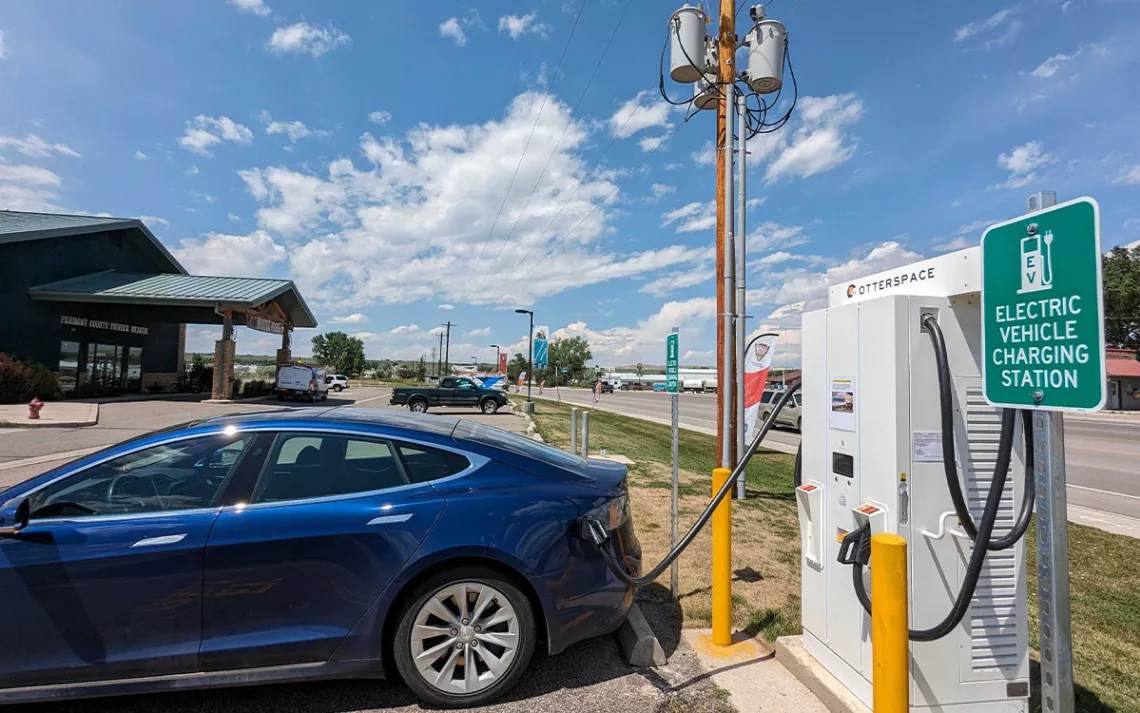
A Level 2 charger at the Fremont County Pioneer Museum in Lander, Wyoming. | Photo courtesy of OtterSpace
A few years after Mike Yin moved to northwestern Wyoming, the software developer gave up his gas car and went electric. His blue Tesla Model S came with an estimated range of 259 miles, and at the time he didn't think the EV was much of a trade-off. Charging stations had sprung up all around his home in Jackson Hole, the state's wealthiest and most liberal community, and his work rarely took him far.
Soon after, the soft-spoken Yin launched a successful bid to become Wyoming's first Chinese American state legislator. Once he entered office in January 2019 and began commuting to the state capitol in Cheyenne—a drive that crosses more than 400 miles of windswept sagebrush—finding places to charge got more complicated.
Tesla's network in Wyoming makes the one-way trip to Cheyenne doable in a day. Yin, who now serves as the House minority leader, pulls off at three of the five supercharging stations the company has built along the remote stretch of Interstate 80 linking the southern corners of the state, adding up to an hour and a half to his total travel time. Without the superchargers, the same trip would be a multiday affair. "All of this is only accessible to Tesla owners right now," Yin said. "None of this really solves the problem for other EV drivers."
Driving an EV is harder off I-80. There are areas without any fast-chargers, and Yin has to connect to a slower station, often spending hours at a time topping up his car. In other areas, there is nowhere for him to plug in at all. Fast-chargers are scarcer still for EVs incompatible with the Tesla charging docks—though a growing number of automakers, including Ford and GM, have inked deals that will give them access to the Tesla network starting next spring.
In Wyoming, where tourism ranks second only to energy as a cornerstone of the state economy, expanding EV infrastructure has proved to be a tricky business. Where and how to charge is a challenge that prevents residents from making the jump to electric like Yin did. Many others remain loyal to gas cars partly for political reasons (a handful of state lawmakers recently called for EVs to be phased out to show support for the oil industry). There were only 720 electric cars and pickups registered in the state as of May 2023, according to the Wyoming Department of Transportation. All but 200 were Teslas.
Meanwhile, the number of visitors arriving in EVs to Yellowstone and Grand Teton National Parks and the rest of Wyoming's natural wonders is outpacing the number of charging stations ready for them. There's federal money available to help fill in the gaps, courtesy of the Bipartisan Infrastructure Law and the Inflation Reduction Act, but a vital share of funding is on hold as state and federal officials try to compromise on where exactly the new chargers will go. That part of the federal program requires that stations be installed at least every 50 miles, and the Wyoming Department of Transportation has asked for a number of state-specific exceptions, citing concerns that the current standards would concentrate too many chargers along routes with little EV traffic—making those stations unprofitable—and would neglect other key tourist routes.
Shortly after Yin entered his second term as a state representative in 2021, he started his own charging company. His first stations, each of which can charge Teslas and non-Teslas in under an hour, went into service last summer in the scrubby, well-traveled pocket of north-central Wyoming that the interstates don't reach. Two of those stations are located in the parking lots of county museums. "For people to visit these communities, they have to be able to get there," Yin said. "That means meeting them wherever they are on what they use for transportation."
His chargers are the fastest in each of the towns they serve. But they are competing with a small network of lower-powered stations that another EV entrepreneur built years earlier.
Patrick Lawson, a member of the Northern Arapaho Tribe of Wyoming and the head of a company that provides internet for the Wind River Indian Reservation, bought a Chevy Volt hybrid in 2012. He went for a Tesla a couple of years later. The company was offering free chargers to businesses during those early days, and Lawson figured he'd be able to find plenty of hotels, restaurants, and museums that would be willing to install them because of the customers the chargers would attract.
Aside from a handful of amenable midrange hotels, however, it was crickets. "I couldn't convince anybody to put in the free ones," Lawson said. "For the most part, people weren't really interested."
In 2016, Lawson and his family quit trying to convince people that EVs would catch on and scraped together the money to build charging stations that catered to all EVs, not just Teslas. Last year, for the first time, some of the 10 stations he runs in the region began to turn a profit. "People were only using them once every couple months to start with, and then it became once every couple weeks, and then every couple days, and now it's like every day," he said. "I'm sure next year it'll be every few hours." The stations are serving enough drivers on their busiest days that lines are forming, he added. And Lawson is working on upgrading his existing chargers to bring down the hours-long wait times. EV charging is no longer a tough sell, he said. "I've got people calling me about it all the time."
Additional funds from the infrastructure law could help expand Wyoming's charging network into its more isolated towns. Most of those towns qualify for a share of the more than $1 billion the law set aside for a grant program aimed, in part, at installing chargers in the communities that need them most. Lawson is already looking forward to the days when out-of-state EVs can breeze through as effortlessly as any other car and his neighbors begin to buy them too.
For now, passersby can often catch a glimpse of the latest, greatest EVs on the market lined up in front of Lawson's house at the edge of the reservation. His brand-new Ford F-150 Lightning, one of a very small number of electric pickups in Wyoming, is an especially good conversation starter.
Lawson wants to do more than just show people his electric cars, though. He's already working on his next business venture, on track to open this year: the first EV-only car dealership in the state.
 The Magazine of The Sierra Club
The Magazine of The Sierra Club
